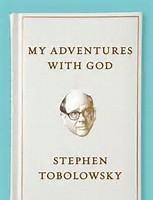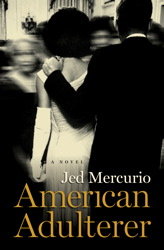You are currently browsing the tag archive for the ‘JFK’ tag.
EXCERPT:
By Joyce Sáenz Harris
Even for fans who are well-acquainted with the work of Dallas native Stephen Tobolowsky, his new book, My Adventures with God, is a bit of a surprise: an exploration of his midlife return to the Jewish faith.


PHOTO: Jim Britt
Tobolowsky is a graduate of Justin F. Kimball High School and Southern Methodist University. In the past three decades, he has become a beloved character actor who displays both comedy and drama chops in more than 100 films as diverse as Groundhog Day and Mississippi Burning. He’s been on more than 200 TV shows ranging from Deadwood to Glee, most recently Silicon Valley and The Goldbergs. He also tells stories on the popular podcast The Tobolowsky Files.
Tobolowsky, who lives in Los Angeles, will return to his hometown to celebrate the publication of My Adventures With God (Simon & Schuster, $25) on Tuesday, April 18, with an appearance at the Dallas Museum of Art as part of Arts & Letters Live. He answered questions by email; here are highlights.
Like your 2012 book The Dangerous Animals Club, My Adventures with God is a memoir with a lot of Dallas and many laugh-out-loud moments. But the spiritual aspect often takes it into a more serious realm.
Simon and Schuster asked me if I could write a book on faith. When I was grasping for a premise for My Adventures with God, I came up with something that turned out to be truer than I first imagined: Our lives often fit the template of the Pentateuch, the first five books of the Old Testament.
We all have a Genesis. This is usually what we talk about on a first date: who we are, where we came from, our aspirations. Then, like in Exodus, we go into slavery. Instead of building pyramids, we lose ourselves in the desperation of first loves, first jobs. Some are trapped by drugs and alcohol, others by graduate school.
Then we escape and have our Leviticus moment. We stop and say, “This is what I am.” This is when I married Ann. When I became a father. When I returned to Judaism. Then we are shaped by mortality, as in the Book of Numbers, as we lose family and friends. And finally, we get to a place of perspective: Deuteronomy. It is here when we tell our stories to our children and try to make sense of the journey.
You were in seventh grade when President John F. Kennedy was assassinated in Dallas, and you write that “for those few days, history pulled back the curtain and showed us all how close we are to the edge of nothing.” Have you had any other occasions like that, such as 9/11?
Once you are aware of how delicate civilization is, you see its potential downfall everywhere. Usually in lies. They can be big lies from people in power — or the lies we tell ourselves. It doesn’t take anything as cataclysmic as 9/11. As my mother said, “Don’t break your word. You only get one. When you break it, it’s hard to get it back again.”
For the rest of the story, visit:
https://www.dallasnews.com/arts/books/2017/04/12/dallas-stephen-tobolowsky-faith-new-book-everyones-old-testament-lives

"American Adulterer" by Jed Mercurio
Here’s a review I wrote for the Books section of the Sunday Dallas Morning News:
By JOYCE SÁENZ HARRIS / Special Contributor to The Dallas Morning News
Joyce Sáenz Harris (jesharris.wordpress.com) is a Dallas freelance writer.
American Adulterer is a strange, morbidly fascinating novel, one sure to generate a fair amount of negative reaction from people who will not read it. Those who do read it, however, will find it peculiarly sympathetic to its subject, President John F. Kennedy, even as it cuts a mythic figure down to very human, deeply fallible proportions.
British author Jed Mercurio, who has a medical background, begins with the conceit of using JFK as “the subject” of a psychiatric study. His actual name does not surface for many pages, but the identity of “the subject” is quite clear from the first sentence:
“The subject is an American citizen holding high elected office, married, and father to a young family, who takes the view that monogamy has seldom been the engine of great men’s lives.”
As the title promises, much of the book revolves around the subject’s libertine attitude toward sex. Yet there are no sex scenes as such in the book. Rather, there is suggestiveness, accompanied by matter-of-fact observations about sexual desire from a male point of view. It’s a man’s world in the early 1960s, and women are regarded subjectively when they are noticed at all.
Mercurio’s “study” posits that his subject’s extramarital sex life was a hobby bordering on addiction. Like other, less famous unfaithful husbands, this one was a compartmentalizer, a rationalizer. The other women in his life were not great romances; they were novelties, challenges for conquest, convenient vessels for physical release.
This could almost qualify as a nonfiction novel, so deftly does Mercurio weave together verified historical fact and sheer imagination. Obviously, we have no idea what really went on in JFK’s head, aside from his own public words, none of which had anything to do with his priapism.
His private life remains mostly a mystery, because those who knew him best, his wife and closest friends, remained loyal to the romantic myth they helped create. Mercurio does his best to strip away the mystery, creating a character who feels authentically like Jack Kennedy. The clinical approach lets the author speak authoritatively about his subject, as an analyst would. But the analyst is soon replaced by the novelist working inside his subject’s head.
It is not a comfortable place to be. Mercurio often dwells on how much physical pain Kennedy endured, how excruciating his days and nights were, and how much deception went into the public image of his youth and vigor. It becomes clear that, if he hadn’t been assassinated, JFK might well have died due to his medical and pharmaceutical issues before he could have served out a second term.
Some sections of American Adulterer have nothing to do with adultery. And those passages are the ones where the president is with his family, the very people who will most likely never read this book.
Although we see little of his parents or siblings (and surprisingly nothing of his brother and confidant, Attorney General Robert F. Kennedy), Mercurio sketches exquisitely tender moments with Caroline and John Jr., scenes that portray JFK in exactly the way his family would like best to remember him.
Most affecting of all is the chapter having to do with the agonizing death of the Kennedys’ prematurely born son, Patrick: “His son shows in his few hours of life what every human being should. He seizes every breath. Like his father, he lives a life of pain but never surrenders. … He wonders, when his own end comes, how long he will fight, and if he will give in, and if he will show the courage the boy has shown, his beautiful, beautiful son.”
The dreadfully familiar ending in Dallas comes quickly and unrelentingly thereafter. Perhaps because I haven’t read a lot of assassination literature, I’d never realized why JFK couldn’t escape the fatal, second bullet. “This man wrecked his back saving a wounded comrade, but this is only part of the story,” Mercurio writes dispassionately. “The condition was exacerbated by his philandering in a hotel room in El Paso, and for these two inseparable reasons he wears a brace that holds his head high when otherwise he would be able to duck the next shot.”
Joyce Sáenz Harris (jesharris.wordpress.com) is a Dallas freelance writer.
jesharris(at)sbcglobal.net
